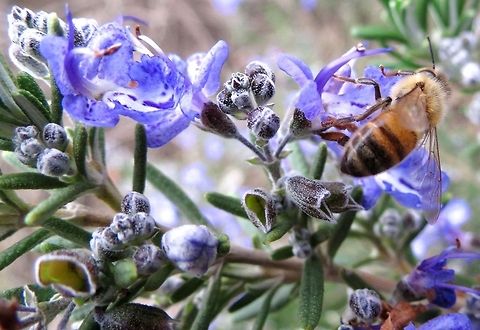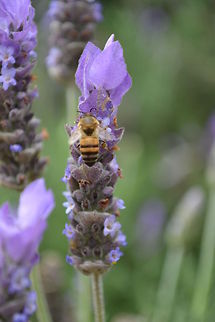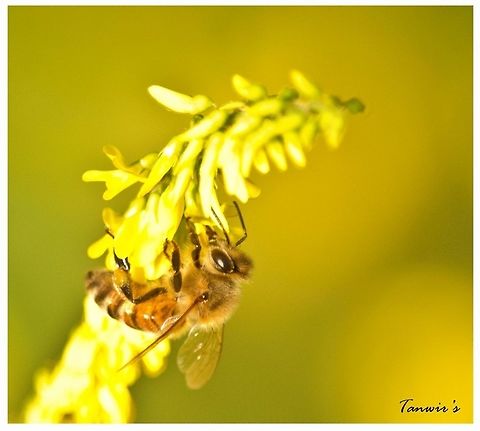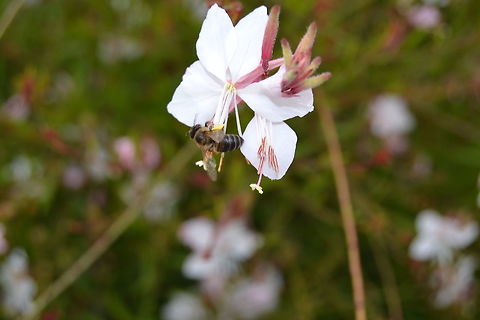African honey bee
Apis mellifera scutellata
The African honey bee is a subspecies of the Western honey bee. It is native to central and southern Africa, though at the southern extreme it is replaced by the Cape honey bee .
This subspecies has been determined to constitute one part of the ancestry of the Africanized bees spreading through America.
The African bee is being threatened by the introduction of the Cape honey bee into northern South Africa. If a female worker from a Cape honey bee colony enters an African bee nest, she is not attacked, partly due to her resemblance to the African bee queen. Now independent from her own colony, she may begin laying eggs, and since ''A. m. capensis'' workers are capable of parthenogenetic reproduction, they will hatch as "clones" of herself, which will also lay eggs. As a result, the parasitic ''A. m. capensis'' workers increase in number within a host colony. This leads to the death of the host colony on which they depend. An important factor causing the death of a colony seems to be the dwindling numbers of ''A. m. scutellata'' workers that perform foraging duties owing to death of the queen, and, before queen death, competition for egg laying between ''A. m. capensis'' workers and the queen. When the colony dies, the ''capensis'' females will seek out a new host colony.
This subspecies has been determined to constitute one part of the ancestry of the Africanized bees spreading through America.
The African bee is being threatened by the introduction of the Cape honey bee into northern South Africa. If a female worker from a Cape honey bee colony enters an African bee nest, she is not attacked, partly due to her resemblance to the African bee queen. Now independent from her own colony, she may begin laying eggs, and since ''A. m. capensis'' workers are capable of parthenogenetic reproduction, they will hatch as "clones" of herself, which will also lay eggs. As a result, the parasitic ''A. m. capensis'' workers increase in number within a host colony. This leads to the death of the host colony on which they depend. An important factor causing the death of a colony seems to be the dwindling numbers of ''A. m. scutellata'' workers that perform foraging duties owing to death of the queen, and, before queen death, competition for egg laying between ''A. m. capensis'' workers and the queen. When the colony dies, the ''capensis'' females will seek out a new host colony.



